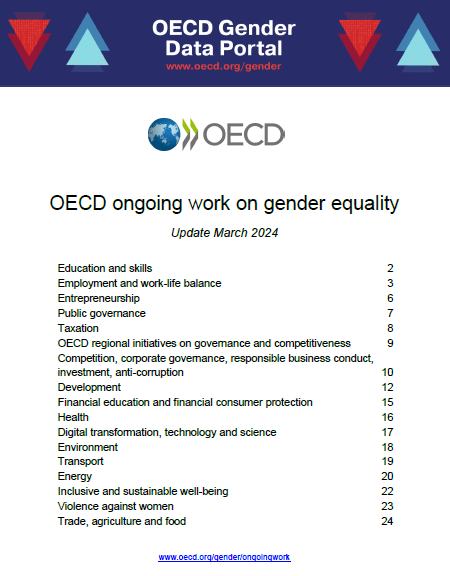Important steps have already been taken in OECD countries to combat gender inequality but significant disparities remain in educational and occupational choices. The OECD Gender Initiative monitors the progress made on gender equality, through data and analysis, and provides best practices for achieving greater equality.
See our ongoing work on gender equality by OECD areas:


